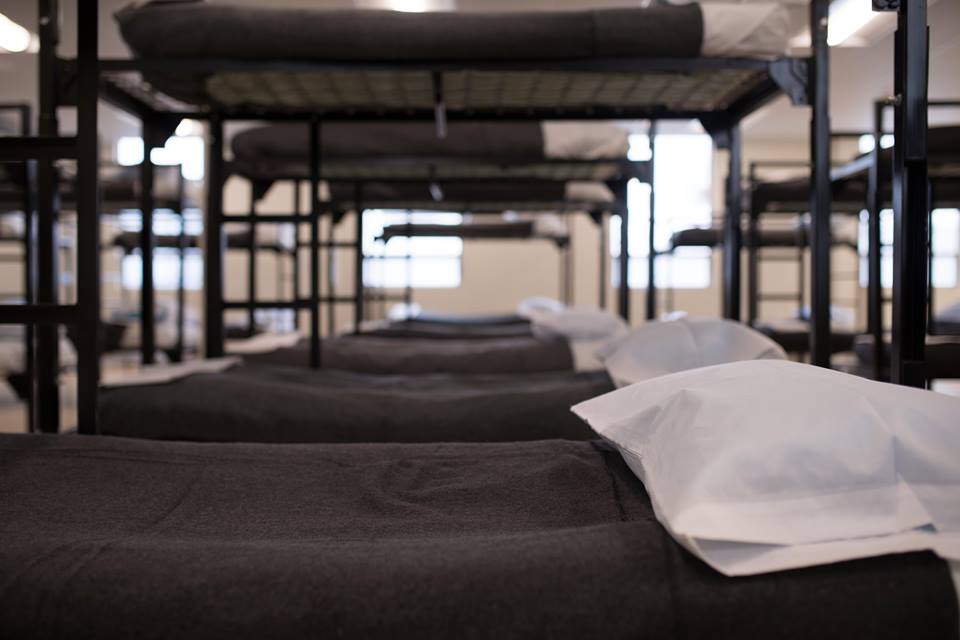The proposal includes $150,000 for “front-door triage,” which will allow staff at shelters around the city to find the best way to help people who are entering the system for the first time.
Another $900,000 will be dedicated to “rapid housing rental assistance,” which aims to get homeless individuals into permanent housing by training them for a job, treating them for addiction, or providing the downpayment for an apartment.
The last $250,000 are to be used to assist families in crisis. It can help cover hotel or motel costs for families who become homeless and are not eligible for state assistance..
These allocations are meant to provide a safety net for the city’s most vulnerable residents, the mayor’s office said.
“I’m proud that through thoughtful savings and finding new efficiencies, we are able to increase funding to help our homeless residents not only find safe, stable housing, but to access the supports and services they need,” Walsh said in a statement.
Boston’s network of providers serves 1,720 homeless individuals in shelter on a single night and shelters 10,883 homeless individuals over the course of the year, according to a 2015 report by the city.
Shortly after Walsh took office in 2014, he announced an action plan to end dependency on the shelter system and eradicate veteran homelessness in the city by 2015 and chronic homelessness by 2018.
He claimed partial victory in his 2016 State of the City speech, announcing that Boston had effectively ended homelessness among veterans. The number of homeless veterans on a given night has declined 44 percent since December 2013, according to the city.
In the next 2 years, Walsh hopes to tackle chronic homelessness as well.
“This is really a sea of change,” said Karen LaFrazia, executive director at the St. Francis House shelter. “I’m really excited that there is a strong commitment and a specific plan to achieve this goal.”
LaFrazia, who has been working at St. Francis House for 20 years, commended Walsh for backing his plan with the proper funds.
“Resources and a plan have to go hand-in-hand,” she said.
One of the main goals of the proposal is to transition homeless families and individuals out of the shelter system as rapidly as possible, city officials said.
Studies have shown that the longer individuals remain in shelters, the more difficult it is for them to leave. By providing rapid housing rental assistance and aid for families in crisis, the proposed funds aim to reduce reliance on the shelter system and prevent chronic homelessness.
“I think this proposal is fantastic,” said Joe Finn, executive director of the Massachusetts Housing and Shelter Alliance. “What it really represents is a kind of planned, rational approach towards addressing [homelessness.]”
The city’s proposal also includes $1 million to hire extra coordinators, counselors, and security staff at the city-run Southampton Street and Woods Mullen shelters.
The budget also includes an increase of $2 million in federal funds to provide low barrier housing.
“The really important thing is the commitment we’re seeing around low barrier housing,” Finn said. “This makes sure the resources we have are being directed at the most vulnerable and those most in need of housing support.”
LaFrazia agreed that providing affordable housing is a major component to ending chronic homelessness, but she also stressed that this is one of the most challenging issues, as housing prices continue to rise in the city and the Greater Boston area.
“It’s great to identify people who could be rapidly rehoused and get them into housing,” she said. “The real challenge in the Boston market is the need for the actual housing inventory to be there.”
The city council is expected to vote on the proposed budget at the end of June.
Finn is optimistic that the approved budget will mark the first step on the road to ending chronic homelessness.
“I think it is a very achievable, positive goal to have, and hopefully providers and people will get behind it to make it reality,” Finn said. “It’s a lot to do, but it’s not impossible.”

Leave a Reply
You must be logged in to post a comment.